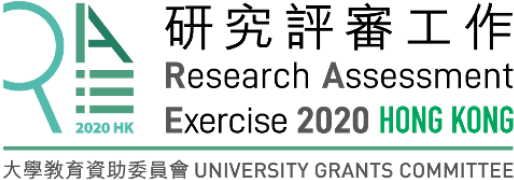Unit of Assessment:
Funder acknowledgements:
?Honeywell International Foundation (1)
MOE Project of Humanities and Social Science (1)
University Grants Committee and Research Grants Council (1)
National Natural Science Foundation of China (NSFC) (1)
Program for Innovative Research Team of Shanghai University of Finance and Economics (1)
Program for New Century Excellent Talents in University (NCET) (1)
Impact locations:
?Asia
China (Mainland China) (6), Singapore (3), Hong Kong, China (2), India (1), Thailand (1), Indonesia (1), South Korea (1)
Europe
Russia (1), United Kingdom (1)
North America
United States (2)
Case Study
The role of information intermediaries in China’s capital markets
1. Summary of the impact
Our faculty follows the school’s research strategy of specializing in China studies and published a series of papers on the information intermediary industries in China, in particular, auditors and financial analysts who certify, process and disseminate information to the capital markets. The research findings have proven to be both locally and globally relevant: they were cited by the Public Company Accounting Oversight Board in setting auditing standards, used by an international asset management firm in advising investment strategies in China, covered by major media around the world (e.g., the BBC, Bloomberg, Yahoo!, The Paper, Tencent’s QQ), and generated significant online discussion in the investment community.
2. Underpinning research
No capital market in the world can function well without proper information, and China is no exception. Information intermediaries in China play vital roles in checking and certifying firm information (auditors), and obtaining, processing and disseminating the information to market participants (financial analysts). Although the auditing and analyst professions are fairly young in China, introduced from the West when China opened the Shanghai and Shenzhen stock exchanges in the early 1990s, they have become increasingly influential in the market. While practices often follow those in the West, China is unique in its weak institutions and heavy reliance on interpersonal relations, which significantly influence the way auditors and analysts exercise independence and access and disseminate information.
Research conducted at CUHK between 2010 and 2019 by Profs. Donghui Wu (2011–), Zhaoyang Gu (2013–), George Yang (2005–) and Ying Cao (2007–) focuses on the roles of auditors and financial analysts in China. The researchers all utilize data from China that are often not available elsewhere (e.g., audit partner-level information, mutual funds’ commission fee allocations to analysts’ brokerages) and study issues that are of particular importance to China (e.g., social ties).
A. Auditors
Auditors provide certification and assurance of information provided by firm management. Traditionally, audit quality is measured by Big-5 (now Big-4) vs. non-Big-5 auditors. More recently researchers have realized that audit engagements are administered and actual audit works are performed by individual partners who differ in their ability and incentives. Prof. Donghui Wu and his co-authors initiated a new stream of research by investigating how attributes of audit partners, rather than audit firms or offices, shape audit outcomes using data from China. 3.1 (see references below) is generally viewed as a first and major step towards partner-level auditing research. Subsequently, this area of research has been expanded to how audit partners’ personal styles and other attributes such as expertise, clientele management and social ties can influence audit quality, pricing and other audit outcomes. Many subsequent works were also carried out by Prof. Wu (e.g., 3.2). For his research on China auditing, Prof. Wu is individually ranked #9 globally in auditing based on total number of publications in the top 12 accounting journals up until the end of 2018, according to the BYU rankings.
B. Financial analysts
In contrast to stock markets in Western countries, where institutional investors are the major players, China’s stock market is dominated by small investors who are heavily influenced by financial analysts. It has been widely recognized that some financial analysts have information advantages over others, and that some are more biased than others in earnings forecasts and stock recommendations given to investors. Profs. Gu, Yang and Cao and their co-authors examine the factors behind analysts’ information advantages and biases. 3.3 shows that the bias of brokerages’ analysts is partly attributable to mutual funds’ use of commission fees to entice them to issue favourable recommendations for stocks that the funds have invested in. 3.4 shows that analysts provide better information to, and bias their recommendations in favour of, mutual funds whose managers are socially connected with them (school ties and former colleagueship). Finally, 3.5 shows that analysts with greater physical attractiveness have information advantages over others and perform better due to their privileged access to information from firm management.
3. References to the research
3.1 Chen Shimin, Sunny Y.J. Sun, and Donghui Wu. 2010. Client importance, institutional improvements, and audit quality in China: An office and individual auditor level analysis. The Accounting Review 85 (1): 127–158.
3.2 Gul Ferdinand A., Donghui Wu, and Zhifeng Yang. 2013. Do individual auditors affect audit quality? Evidence from archival data. The Accounting Review 88 (6): 1993–2023.
3.3 Gu Zhaoyang, Zengquan Li, and George Yang. 2013. Monitors or Predators: The Influence of Institutional Investors on Sell-side Analysts. The Accounting Review 88 (1), 137–169.
3.4 Gu Zhaoyang, Zengquan Li, George Yang, and Guangqin Li. 2019. Friends in Need are Friends Indeed: An Analysis of Social Ties between Financial Analysts and Mutual Fund Managers. The Accounting Review 94(1), 153-181.
3.5 Cao Ying, Feng Guan, Zengquan Li, and George Yang. 2019. Analysts’ beauty and performance. Management Science, forthcoming.
4. Details of the impact
During the current RAE cycle, as part of CUHK Business School’s concerted effort to promote China research, a knowledge platform named China Business Knowledge (CBK) was built with the aim of sharing research findings by our faculty with academics, practitioners and business communities around the world. The latest China studies, often in working-paper form, are summarized into feature articles. An increasing readership of the platform has been observed; average monthly page views reached 38,000 in 2018–19. Feature articles are also regularly disseminated to nine countries including the UK, India, Russia, South Korea, Indonesia, Thailand and China. The impact of the RAE case described below was largely achieved through the initial promotion by CBK.
1. Auditors
The findings of 3.1 and 3.2 have contributed to public policy making. In 2013, the Public Company Accounting Oversight Board (PCAOB), created by the Sarbanes-Oxley Act of 2002 as the de facto auditing standard-setter in the US, proposed to amend its standards to require audit firms to disclose the names of engagement partners. According to the press release by the American Accounting Association on 18 October 2013 (5.1), the findings of 3.2 ‘promise to influence the PCAOB’s deliberations and a possible decision early next year’. On 15 December 2015, the PCAOB adopted a new standard requiring disclosure of the name of the engagement partner in the US. Cited by the PCAOB in its regulatory release (5.2), ‘firm reputation is an imprecise signal of audit quality because engagement partners and other audit participants differ in the quality of their audit work’. Prof. Wu’s studies lend support to the PCAOB’s move to the public disclosure of the specific partner in charge of the audit.
2. Financial Analysts
The two studies by Profs. Gu and Yang (3.3 and 3.4) have drawn significant attention from the investment community.
1) Woodsford Capital Management (WCM), a Singapore-based fund management company specializing in the Chinese markets, requested a podcast interview with Prof. Gu in 2017 on the research. Through voice and written versions of the interview (5.3), the research findings were promoted by WCM to the investment community as advice on investment strategies in China, which has been well received.
(a) The voice version of the interview has been played over 4,000 times since June 2017 and received comments from listeners such as ‘Right to the point’ and ‘Allows us to see the truth’. The first written version in October 2017 received many discussions from readers. In October 2018, when the Chinese stock market was in the middle of a major downfall, a rewritten version was promoted by WCM to bring the advice to the attention of investors once again. Many readers made comments, such as ‘I recalled how I did this when I was buying stocks before.’
(b) In June 2018, when asked by investors to pick the Top 10 2017 Interviews Most Worthy of Listening to (5.4), WCM in particular recommended this interview and commented that, ‘if you are a shareholder, or even a mutual fund investor, you should listen to this interview. You will find it invaluable.’
(c) The interview is included in full in a book authored by WCM targeted at small investors (5.5).
2) BBC World News featured Prof. Gu commenting on the research findings of 3.4 in the Asia Business Report aired on 23 June 2016 (5.6). This is the first time a CUHK Business School study has been featured on this influential TV programme.
3) The research findings of 3.3 and 3.4 were featured in the keynote talks in the CUHK Business School luncheon series to Hong Kong investment professionals in October 2017 and in the CUHK alumni event in Singapore in February 2019. Many local media covered the talk (5.7). Singapore alumni also commented favourably (examples available upon request).
4) Numerous mainstream media outlets such as Bloomberg, Yahoo! Finance and Sina Hong Kong reported the research for 3.4 in 2016 before the paper was published.
More recently, in September 2019, the publication of 3.5 generated a wave of mainstream media coverage and heated online discussion on how analysts’ beauty can realistically help them gain an information advantage in their job and whether this is a good thing (5.8). According to the newspaper reports, ‘the research findings have been widely circulated and talked about in the finance community’. Following the interest, The Paper, one of the most popular new news media sources in China, requested an interview with Prof. Yang. Other mainstream media such as Tencent’s QQ, Sina and the 21st Century Economic Reports either separately reported the research or reproduced the article in The Paper. Many online comments and discussions followed the coverage. Even though the research is about analysts in China, The Irish Times and the Nikkei Asian Review also reported the findings when the study was still a working paper.
5. Sources to corroborate the impact
5.1 American Accounting Association (AAA). 2013. Studies add weight to proposal to require identification of lead auditors of company financial reports. Press release, October 18. Available at http://www2.aaahq.org/newsroom/AR913_CArcelloLi2013_10_18.htm.
5.2 Public Company Accounting Oversight Board (PCAOB). 2015. Release No. 2015-008: Improving the Transparency of Audits. December 15. P. 40. Available at https://pcaobus.org/Rulemaking/Docket029/Release-2015-008.pdf.
5.3 The voice version of the podcast interview with Prof. Gu by Woodsford Capital Management (WCM) is available at http://www.ximalaya.com/89201165/sound/52138818/ (since June 2017). The first written version of the interview is available on the company’s own account at https://mp.weixin.qq.com/s/VzijQgk4AlCHkffAXQUMZw and on a public site at https://zhuanlan.zhihu.com/p/29647288 (since October 2017). A rewritten version of the interview is available at https://mp.weixin.qq.com/s/R89B3RaYFsODu_fotN264w (since October 2018).
5.4 Top 10 Interviews in 2017 Most Worthy of Listening to, recommended by Woodsford Capital Management (WCM). Available at https://mp.weixin.qq.com/s/a3GsX9C6DAxBrFdFaL_eEw since June 2018.
5.5 Wu Zhijian, A Guidebook to Surviving the Investment Jungle. China Electrical Engineering Publishing House. 2018. The interview with Prof. Gu on the findings of 3.3 and 3.4 constitutes Section 12.4 of Chapter 12.
5.6 BBC World News interview with Prof. Gu. Available at https://www.youtube.com/watch?v=oVaqivyOJlc.
5.7 Links to media reports of the luncheon talk on the research findings of 3.3 and 3.4:
https://hk.finance.appledaily.com/finance/realtime/article/20171026/57379721 (Apple Daily)
https://hk.finance.appledaily.com/finance/daily/article/20171027/20196129 (Apple Daily)
https://www.e123.hk/ElderlyEasy/details/571736/77/ (eElderly)
https://www1.hkej.com/dailynews/finnews/article/1687695/ 中大研究:內地券商報告一味 唱好 (Hong Kong Economic Journal)
http://hk.epochtimes.com/news/2017-10-27/61253272 (Epoch Times)
5.8 Links to media reports of the research findings of 3.5:
https://m.thepaper.cn/newsDetail_forward_4503576 (The Paper)
https://xw.qq.com/cmsid/20190924A09I5T00 (QQ)
https://finance.sina.cn/2019-09-24/detail-iicezzrq8155102.d.html?cre=wappage&mod=r&loc=3&r=9&rfunc=39&tj=none&cref=cj& wm= 4007 (Sina)
https://mp.weixin.qq.com/s/EefwlfRZX-BRmhpi98BiLA (21st Century Economic Reports)
https://xueqiu.com/7249480768/133268760 (Xueqiu)
http://ask.ivideo.sina.com.cn/v_play_ipad.php?vid=30575618301
https://www.irishtimes.com/business/personal-finance/why-do-beautiful-chinese-market-analysts-do-better-1.3040432 (The Irish Times)
https://asia.nikkei.com/Viewpoints/George-Yang/How-attractive-analysts-make-better-stock-calls (Nikkei Asian Review)

